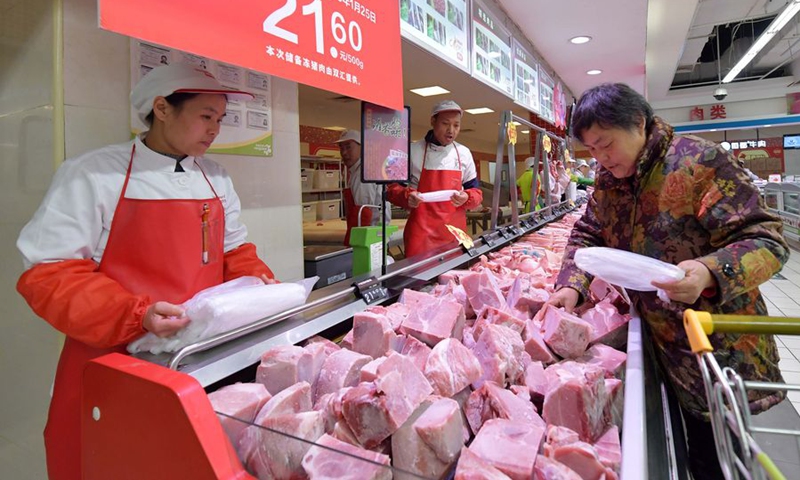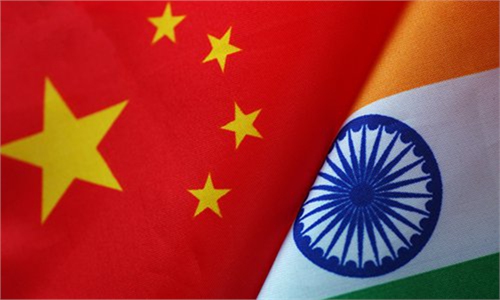
Customers purchase reserve pork in a supermarket in Nanchang, east China's Jiangxi Province, Dec. 22, 2019. (Xinhua/Peng Zhaozhi)
It is wishful thinking that India claims it can attract frozen food buyers away from China, as it has neither strong domestic demand for such products, nor a mature business environment to replace China's position in the frozen food supply chain, said Chinese experts.
An Indian government minister recently told media that the Indian government is betting on its frozen food sector to earn more foreign currency.
"I don't think that India possesses the capacity to reach its goal in the short term, as it has neither the hardware conditions, such as plants and refrigerated warehouses, nor the software conditions, like talent and management experience," Dai Yonghong, director of the Institute of Bay of Bengal Studies at Shenzhen University, told the Global Times Sunday.
Dai said it would be impossible for India to realize its goal within five years.
Harsimrat Kaur Badal, India's food processing industries minister, told Bloomberg in an interview that although China has a comparative advantage over India, the COVID-19 pandemic is prompting people to rethink sourcing locations.
"We have identified key sectors such as the frozen food and ready-to-eat segments," she said, adding that the Indian government is speeding up capacity additions for cold storage chains, reefer vehicles and mega food parks to support the food processing industry, Bloomberg reported.
However, according to the Reserve Bank of India, the central bank, the country is a major global producer of some food items, but it only processes 10 percent of its total output due to gaps in supply chain infrastructure, inadequate links between production and processing, and an inadequate focus on quality and safety standards.
According to industry reports, the Indian frozen foods market was worth 74 billion rupees ($974.2 million) in 2018 with a projection to reach 188 billion rupees by 2024. By comparison, China's frozen food market is expected to be valued at $26.5 billion by 2024, driven by an increase in demand, said an international market research and consulting organization Hexa Research.
"I don't see any comparative advantage of India in domestic market demand, overseas orders, technology or the international competitiveness of Indian food processing enterprises," Dai noted.
India and the US have reached a tacit agreement on containing China's economic growth and reducing their dependence on China's supply chains after the COVID-19 outbreak, Dai said, but India is unable even to protect itself.
Earlier this month, global credit agency Moody's Investors Service downgraded India's foreign-currency and local-currency long-term issuer ratings from Baa2 to Baa3 - the lowest investment grade - in the wake of the economic blow of the pandemic.

